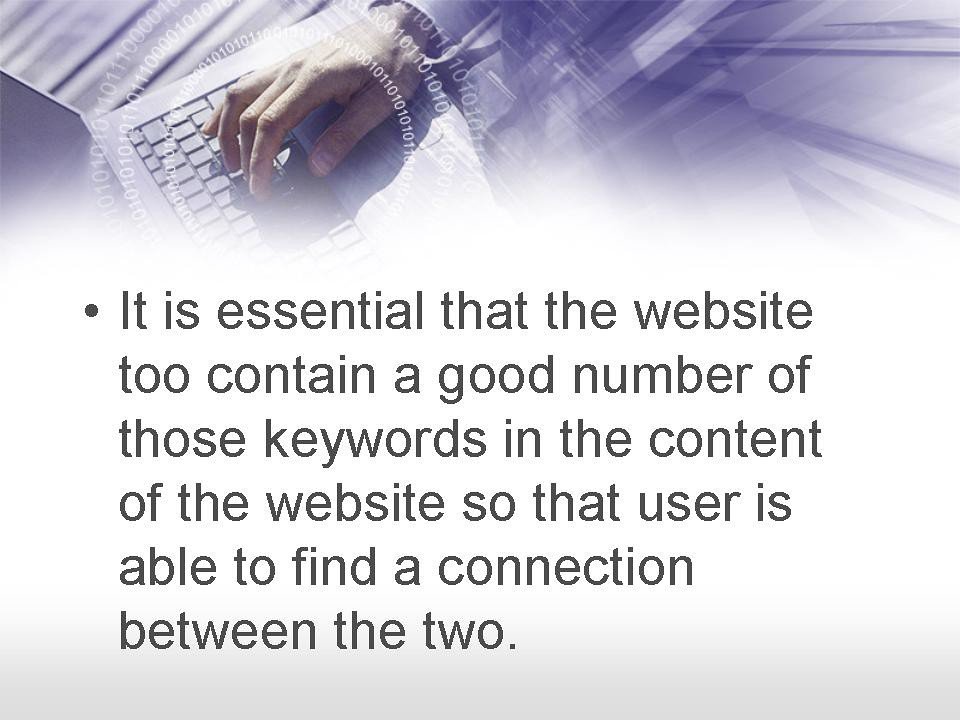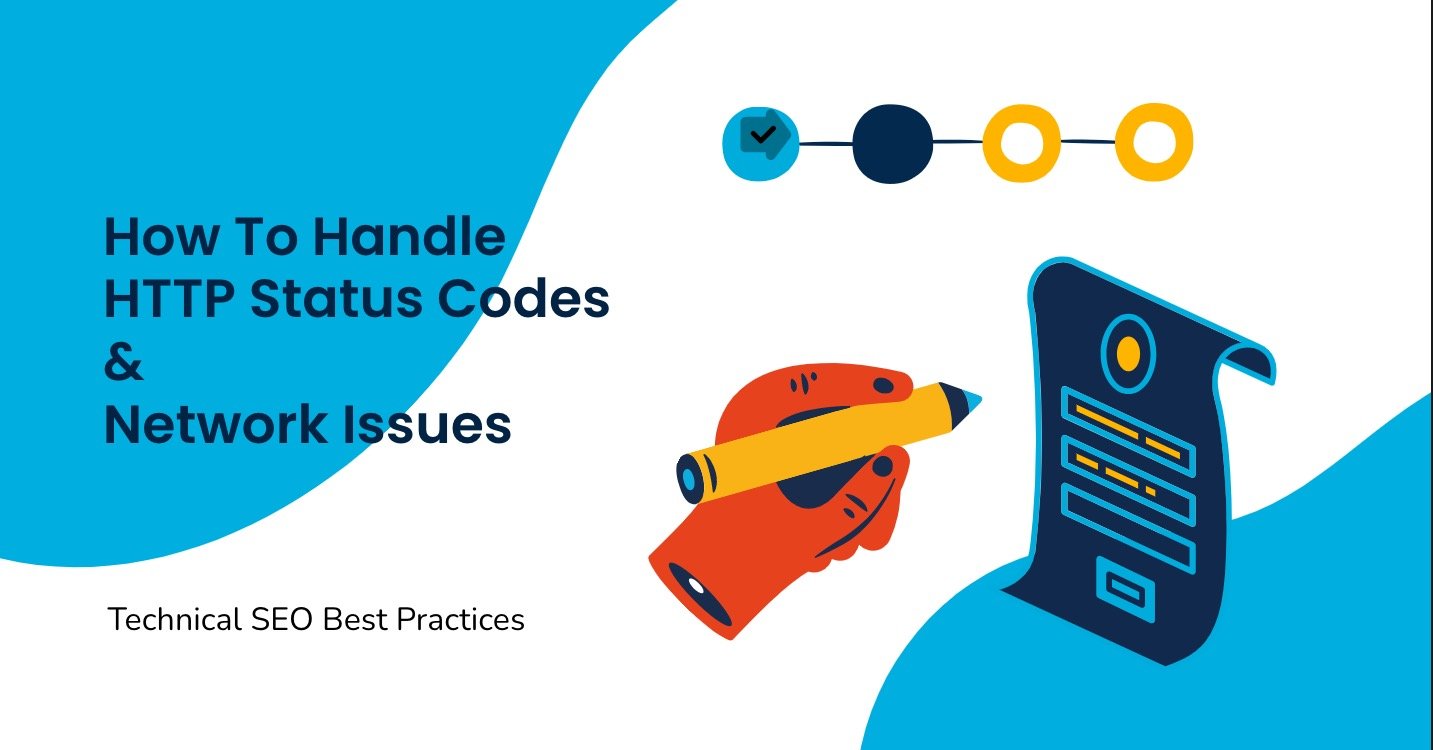In the vast realm of search engine optimization (SEO), a peculiar dichotomy exists, polarizing the strategies into two distinct realms: on-page and off-page. Much like yin and yang, these two elements dance in tandem, each contributing its unique essence to the grand symphony of SEO success. On one hand, we have the intricately woven tapestry of on-page strategies, carefully tailored to cater to the search engine algorithms. On the other hand, we find the enigmatic wanderers of off-page techniques, traversing the vast landscapes of the internet to forge connections and elevate website authority. Join us on a journey into the SEO dichotomy, as we explore the powers, intricacies, and potential consequences of employing on-page and off-page strategies in the quest for digital supremacy.
Table of Contents
- Introduction: Understanding the SEO Dichotomy and its Impact on Website Visibility
- Strategies for Enhancing On-page Optimization: Unveiling the Art of Crafting SEO-friendly Content
- Exploring the Power of Off-page Optimization: Leveraging External Factors to Boost Search Engine Rankings
- Unveiling the Perfect Blend: Integrating On-page and Off-page Strategies for Optimal SEO Results
- Q&A
- In Conclusion

Introduction: Understanding the SEO Dichotomy and its Impact on Website Visibility
In the vast world of Search Engine Optimization (SEO), understanding the dichotomy between on-page and off-page strategies is crucial for improving website visibility. On-page strategies refer to the elements that you have direct control over on your website, such as optimizing titles, headings, meta descriptions, and content. These strategies focus on ensuring that your website is user-friendly, easily navigable, and relevant to the topic at hand.
One of the key benefits of on-page strategies is that they allow you to optimize your website for specific keywords, making it more likely to appear in search engine results. By strategically placing keywords throughout your content, you can signal to search engines that your website is a valuable resource for users searching for those terms. Additionally, on-page strategies also involve creating compelling and informative content that resonates with your target audience, attracting more organic traffic to your website.
On the other hand, off-page strategies involve external factors that impact your website’s visibility, such as backlinks and social signals. Backlinks, which are links from other websites to yours, serve as a vote of confidence in the eyes of search engines. The more authoritative and relevant websites that link back to yours, the higher your website’s credibility and visibility can be. Social signals, such as the number of likes, shares, and comments your content receives on social media platforms, also play a role in off-page SEO. These signals indicate to search engines that your content is valuable and engaging, which can contribute to higher search rankings.
It’s important to note that while on-page and off-page strategies work hand in hand, they require different approaches and considerations. By understanding the SEO dichotomy between on-page and off-page strategies, you’ll be better equipped to optimize your website for improved visibility and ultimately drive more organic traffic to your online presence. So, let’s delve deeper into each strategy to uncover the secrets to boosting your website’s SEO performance!
Strategies for Enhancing On-page Optimization: Unveiling the Art of Crafting SEO-friendly Content
When it comes to boosting your website’s visibility and ranking on search engine results pages (SERPs), on-page optimization plays a significant role. Crafting SEO-friendly content that appeals to both users and search engines is the art every website owner should master. However, it’s essential to understand the SEO dichotomy between on-page and off-page strategies to achieve sustainable success.
While off-page optimization primarily focuses on building backlinks and establishing your website’s authority through external factors, on-page optimization revolves around optimizing your website’s own content and code. It’s like honing your website to make it more engaging, relevant, and valuable for users. The following strategies for enhancing on-page optimization will help you navigate the intricate world of SEO, ensuring search engines recognize and appreciate your website’s worth:
- Keyword Research: Uncover the search terms your target audience uses to find information relevant to your website. Craft content around these keywords to increase your chances of ranking higher in SERPs.
- Optimized Title Tags: The title tag is like the headline of your web page. It should be concise, compelling, and include relevant keywords to entice both search engines and users.
- Meta Descriptions: These brief snippets that appear below the title tag in SERPs provide a concise summary of your page’s content. Be sure to optimize them by including keywords and a persuasive call-to-action to attract more clicks.
- High-quality and Relevant Content: Create content that is informative, engaging, and tailored to your target audience’s needs. Strive for originality, clarity, and depth to establish your website as a go-to resource.
- Header Tags: Use HTML header tags (H1, H2, H3, etc.) to structure your content. They make it easier for search engines to understand your page’s layout and hierarchy.
- Optimized URL Structure: Keep your URLs short, descriptive, and keyword-rich. Clear URLs contribute to a better user experience and enhance crawling efficiency for search engines.
- Internal Linking: Create a network of internal links within your site. This helps search engines navigate your content, increasing its discoverability and enhancing user experience by providing relevant information at their fingertips.
- Visual Optimization: Optimize images and videos on your web pages by using descriptive file names, alt tags, and relevant captions. Visual content plays a crucial role in engaging users and making your website more attractive.

Exploring the Power of Off-page Optimization: Leveraging External Factors to Boost Search Engine Rankings
Off-page optimization plays a crucial role in enhancing search engine rankings and boosting website visibility. While on-page strategies focus on optimizing the website itself, off-page optimization deals with external factors that can influence a site’s reputation and authority in the digital landscape. Let’s delve deeper into the power of off-page optimization and how it contributes to the SEO dichotomy, offering a holistic approach to improving search engine rankings.
1. Building Quality Backlinks: One of the most effective off-page strategies is building high-quality backlinks. These are links from other websites that point to your site, showcasing its credibility and reliability. Search engines consider these backlinks as “votes” for your website’s authority. The higher the quality and relevance of the backlinks, the more search engines will trust your site and potentially reward it with higher rankings.
2. Social Media Presence: Social media platforms are not just for connecting with friends and sharing updates; they are also powerful tools for off-page optimization. Engaging with your audience on platforms like Facebook, Twitter, and Instagram not only strengthens your brand presence but also expands your reach and builds valuable links. Sharing content and encouraging social sharing helps generate backlinks, improve brand visibility, and consequently enhance your search engine rankings.
In a nutshell, off-page optimization complements on-page strategies by focusing on the reputation and authority of a website in the digital landscape. By building quality backlinks and leveraging the power of social media, businesses can boost their search engine rankings while establishing themselves as trustworthy and authoritative sources within their industry. So, remember to explore the power of off-page optimization to maximize your SEO efforts and stay ahead of the digital competition.
Unveiling the Perfect Blend: Integrating On-page and Off-page Strategies for Optimal SEO Results
In the world of search engine optimization (SEO), there are two key strategies that play a vital role in driving organic traffic to your website: on-page and off-page optimization. On-page SEO focuses on optimizing elements within your website, while off-page SEO involves activities that are conducted outside of your website to improve its visibility and credibility. Although they are two distinct approaches, integrating these strategies can unlock the full potential of your SEO efforts and deliver optimal results.
Integrating on-page and off-page strategies can be compared to two sides of a coin:
- Visibility: While on-page optimization ensures that your website is easily accessible for search engine crawlers through elements like meta tags, quality content, and well-structured URLs, off-page optimization enhances your website’s visibility through external factors such as backlinks, social media presence, and online reputation.
- Credibility: On-page SEO helps establish your website as a trustworthy source by optimizing page load speed, providing a seamless user experience, and creating relevant and valuable content. On the other hand, off-page SEO builds credibility through high-quality backlinks, positive customer reviews and testimonials, and mentions from authoritative websites.
By effectively integrating these strategies, you can capitalize on the strengths of both approaches and achieve the best possible results for your website’s search engine ranking. The perfect blend of on-page and off-page SEO creates a harmonious symphony that not only enhances your website’s visibility but also boosts its credibility in the eyes of search engines and users alike.
Q&A
Q: What is the SEO dichotomy?
A: The SEO dichotomy refers to the division of search engine optimization strategies into two main categories: on-page and off-page techniques. This dichotomy helps us better understand the various methods used to improve website visibility and ranking on search engine result pages.
Q: What are on-page strategies?
A: On-page strategies involve optimizing elements within your website for search engines. This includes factors like keyword research, content creation, meta tags, URL structure, site architecture, and internal linking. On-page strategies focus on enhancing user experience, website structure, and optimizing individual web pages to make them more appealing and relevant to search engines.
Q: And what about off-page strategies?
A: Off-page strategies, on the other hand, are focused on external factors that influence your website’s search engine rankings. These strategies mainly include link building, social media marketing, online reputation management, influencer outreach, and guest posting. Off-page optimization aims to establish authority, credibility, and popularity of your website through activities that occur outside of your website itself.
Q: Which strategy is more important, on-page or off-page?
A: Both on-page and off-page strategies hold significant importance in an effective SEO campaign. While on-page tactics lay the foundation for your website’s structure, relevance, and user experience, off-page strategies play a crucial role in building the website’s authority and reputation. Ignoring either of these strategies can hinder your website’s overall visibility and ranking potential.
Q: How can on-page strategies benefit a website?
A: On-page strategies are pivotal in improving a website’s visibility to search engines by ensuring that the content and structure are optimized for relevant keywords. These strategies help search engine crawlers easily understand your website’s purpose, resulting in improved rankings and increased organic traffic. Additionally, on-page optimizations enhance user experience, leading to longer visit durations, lower bounce rates, and ultimately higher conversion rates.
Q: What advantages do off-page strategies offer for SEO?
A: Off-page strategies primarily focus on building quality backlinks from other reputable websites, which acts as a vote of confidence for search engines. High-quality backlinks increase your website’s authority and credibility, which in turn positively impacts its search engine rankings. Off-page tactics also help to improve brand visibility, attract new audiences, and boost social signals, all contributing to a stronger online presence.
Q: Can on-page and off-page strategies work together?
A: Absolutely! On-page and off-page strategies should complement each other to achieve the best SEO results. While optimizing your website’s structure and content on-page, implementing effective off-page techniques ensures that your website gains recognition and popularity from external sources. A harmonious synchronization of on-page and off-page strategies is the key to maximizing your website’s organic traffic potential and enhancing its overall performance in search engine rankings.
Q: How can one determine the right balance between these strategies?
A: Finding the right balance between on-page and off-page strategies can vary for each website, depending on its goals, target audience, industry, and current situation. It’s important to assess your website’s individual needs and priorities while keeping in mind that a combination of both strategies is crucial for long-term SEO success. Regular monitoring, analysis of performance metrics, and staying updated with industry best practices will help you determine the optimal balance that works best for your website.
Q: Are there any other SEO strategies apart from on-page and off-page?
A: While on-page and off-page strategies are the cornerstone of SEO, there are other essential aspects that contribute to a comprehensive SEO campaign. These include technical SEO, mobile optimization, local SEO, content outreach, and user engagement tactics. By incorporating these additional strategies, you can further enhance your website’s search engine visibility, user experience, and overall success in the highly competitive digital landscape.
In Conclusion
As we unravel the enigmatic world of SEO, one can’t help but stand in awe of its dichotomy. On one hand, we have the mighty On-page strategies, fortified with compelling content, keywords, and exquisite website architecture, meticulously designed to captivate search engine algorithms. On the other hand, Off-page strategies emerge as elusive vixens, dancing on the periphery of the web, crafting influential backlinks, and establishing our digital empires beyond the boundaries of our own domains.
Together, they form a delicate balance, a yin and yang of SEO, each playing a crucial role in our quest for online supremacy. The On-page magic, meticulously woven with intricate keyword research and flawlessly structured websites, lays the foundation for our digital narratives. It sets the stage, beckoning search engines to take notice, irresistible in its allure.
Yet, it is the enchanting Off-page strategies that truly bring our stories to life. Like whispered secrets traveling through the vast social network veins of the internet, they cast their spell, breathing life into our websites. Through the invisible threads of backlinks, our digital presence expands, creating connections, and weaving a tapestry of influence that reaches far beyond what we had ever imagined.
But let us not forget, dear reader, that this dichotomy is not a battle between two warriors, lusting for supremacy. No, it is a harmonious dance, a duet that requires collaboration and unity. The marriage of On-page and Off-page strategies creates a symphony, where each instrument plays its own melody, but together, they create a masterpiece of SEO excellence.
So let us embrace this dichotomy, acknowledging the power of both realms. Let us not forsake the allure of captivating content and immaculate website structures, nor the mystique of the celestial backlinks stretching into the infinity of the digital cosmos. For it is in the delicate interplay of these two strategies that our websites truly thrive.
As we bid farewell to this exploration of the SEO dichotomy, let us continue to navigate the ever-changing landscape, adapting our strategies to the whims of the search engine gods. For in this realm, the only constant is change, and it is our willingness to embrace both on-page and off-page strategies that will guide us towards SEO enlightenment.
